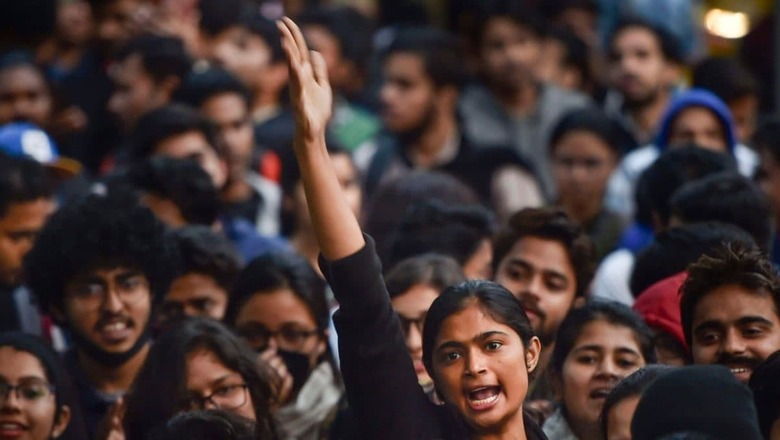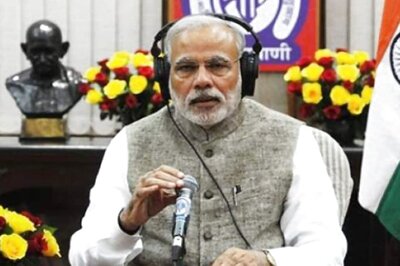
views
As India strides toward its 100th year of independence in 2047, the vision of a ‘Viksit Bharat’—a developed and prosperous nation—has become a shared dream for all of us. This ambitious goal, championed by Prime Minister Narendra Modi, places the youth at the heart of our country’s development journey.
With nearly half of our population under the age of 25, our youth are not just our future—they are the very bedrock upon which that future will be built. Achieving our goals by 2047 depends as much on leveraging this demographic advantage as it does on driving economic growth, technological innovation, and social progress.
I vividly remember sitting in front of the television on August 15, 2024, as Prime Minister Modi delivered his Independence Day speech. His words were nothing short of inspiring. With palpable passion, he affirmed his belief in our generation, emphasizing that we are not content with incremental progress; we are eager to achieve bold, transformative advances. Declaring that India is in a “golden era,” he highlighted the unprecedented opportunities available, particularly for the youth. His message was clear: we must seize this moment, harnessing the favorable global conditions to drive India toward its goal of becoming a developed nation by 2047.
Empowering the youth and ensuring our active participation in national affairs will be pivotal in securing a prosperous and developed India in the coming years.
Education, in my view, is a powerful tool to empower the youth. While India has made significant strides in improving access to education over the past few decades, the focus is now shifting toward aligning education with the demands of the rapidly evolving 21st century. The Indian education system is evolving from a traditional, knowledge-based model to one that nurtures critical thinking, creativity, and innovation. Reviving the spirit of ancient Nalanda University, Prime Minister Modi has reaffirmed his commitment to transforming India into a global education hub. This is our moment to seize. We should leverage the rich resources available to us and embrace a holistic approach to education—one that cultivates emotional intelligence, ethical values, and leadership skills. These qualities will help us navigate the complexities of today’s world and make a meaningful contribution to our nation’s development.
However, while education lays the foundation, it’s skill development that bridges the gap between academic learning and employability. India’s National Skill Development Mission is actively addressing this need, evolving to become more inclusive, comprehensive, and future-focused. Central to this transformation are the increasing public-private partnerships, industry-academia collaborations, and innovative training programs. With the rise of digital tools and online platforms, skill development is now more accessible than ever. Initiatives like the National Skill Development Corporation (NSDC) and Skill Development Management Systems (SDMS) are dedicated to training the youth and establishing India as the world’s skill capital. These programs equip young people with the tools to enhance their abilities, enabling them to contribute effectively to critical sectors such as technology, manufacturing, and services. Let us prioritize continuous learning and skill enhancement to stay competitive and propel India’s economy forward.
But our role shouldn’t be limited to education and skills alone. Active involvement in governance and policy-making is crucial to ensuring that our voices are heard and our concerns addressed. Let us take concerted effort to engage in youth parliaments, leadership programs, and digital platforms that offer opportunities to influence policy decisions. Additionally, let us also step up and take on leadership roles at all levels of society, from local communities to the national stage. This participation will not only bring fresh perspectives into governance but also help ensure that policies are tailored to the needs and aspirations of our generation.
Prime Minister Modi’s call to induct 100,000 youth into the political system is a step in the right direction. It’s aimed at combating entrenched issues like nepotism and casteism while infusing Indian politics with new energy and ideas. We need to move beyond being passive beneficiaries of national progress and actively begin shaping it. This means engaging in the democratic process, understanding and influencing national policies, and holding leaders accountable. By also contributing to community development through volunteer work or social campaigns, we can address grassroots issues and build a deep sense of responsibility and ownership over our country’s future.
As we look ahead to 2047, it’s clear that today’s youth will be the architects of a developed India. This journey is not just a vision; it’s our national mission and a shared responsibility that demands the active participation of every citizen, especially us, the youth. With our spirit of innovation, commitment to learning, and passion for social justice, we have the potential to usher India into a new era of prosperity. By taking ownership of this mission and contributing in meaningful ways, we can ensure that India not only meets but exceeds its goals for the future. Let us pledge to build a prosperous, equitable, and vibrant India, ready to claim its rightful place on the global stage.
Radhika Deshmukh is a Senior Consultant at ‘Big 4’. Views expressed in the above piece are personal and solely that of the author. They do not necessarily reflect News18’s views.




















Comments
0 comment